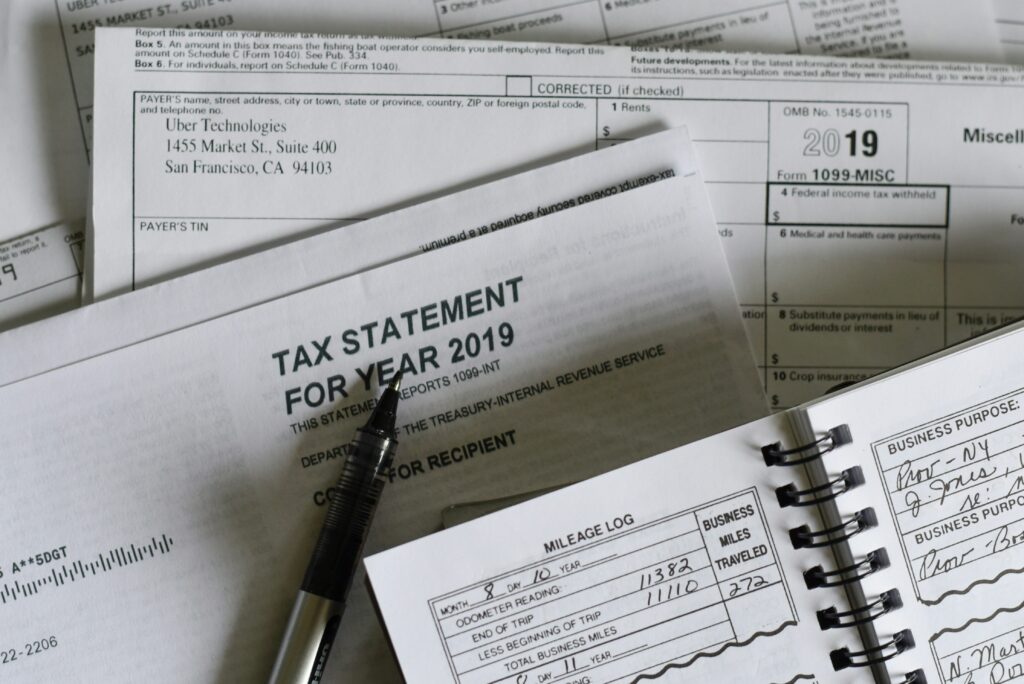With three tax classes and 23 distinct rates ranging from 0% to 42%, Luxembourg has one of the most complex income tax regimes in all of Europe. Although this top rate may seem high, it is lower than that of nearby nations like Belgium. Foreign nationals who reside in Luxembourg are often required to pay income tax and submit tax returns. While in Luxembourg, business owners could be charged both corporation tax and VAT.

Residents and non-residents
Your resident status in Luxembourg determines whether you are qualified for certain tariff advantages. Residents are required to report their global income, whilst non-residents are only subject to tax on their income earned in Luxembourg. You need to have resided in Luxembourg continuously for more than six months to be a resident taxpayer. You are considered a non-resident taxpayer if your stay in the country lasted less than six months.
Foreigner’s tax system
You may qualify for the impatriate tax system if you are a highly competent expat hired from outside. In 2023, employees with a minimum annual income of €75,000 can qualify for a tariff exemption on up to 50% of the impatriation premium, provided it doesn’t exceed 30% of their annual base salary. This threshold has decreased from €100,000 in 2022. Additionally, your employment must be based on abilities that are not replacing another local employee and you must be a resident of Luxembourg.
Income tax
Your conjugal status and taxable pay will both influence how much income duty you’ll need to pay. Pay from occupations, independent work, benefits, ventures, investment property, and other things like individual property and capital additions are classified as taxable profits. The three tariff classifications that apply to workers in Luxembourg determine your tax-free allowance. On incomes beyond €200,000, there are an additional 23 income tax brackets, ranging from 0% to 42%.
Self-employment tax
Freelancers and self-employed individuals pay the same taxes as employees. A yearly income tax return must be completed. Directors of limited businesses are required to pay corporate tariffs rather than income tax, which only applies to partnerships and sole proprietors.
Corporate taxes
Businesses in this country must pay corporation tax at a rate of 17% if their annual revenue exceeds €200,000. Companies are also required to pay a 7% supplementary solidarity tariff as well as a 6.75% municipal business tax in Luxembourg City. Accordingly, the effective corporation tax rate for enterprises with larger incomes is 24.94%. Organizations with yearly profit underneath €175,000 benefit from a decreased corporate duty of 15%, bringing about an all-out rate of 22.8%. Those earning in the range of €175,001 and €200,000 pay an extra €26,250, in addition to 31% of the excess pay above €175,000. Typically, businesses pay corporate taxes quarterly in advance, with payments due in March, June, September, and December.
Real estate tax
Property charges apply to residential, business, and blended-use properties. The property charge rate fluctuates given the property type and area, going from 0.7% to 1%. For additional info, kindly contact your neighborhood Luxembourg civil office.
Family taxes
If you and your spouse relocate to Luxembourg, you would typically pay taxes on both of your incomes. Lower-income tariff rates are often available to married couples, which may be beneficial. They are taxed separately when one spouse lives in the state and the other does not. Joint income coverage is a choice for non-marital couples if one partner (or the non-resident partner) earns 90% or more of their combined income in Luxembourg. Before requesting joint taxes, a couple must reside at the same address in the country for at least a full year.
VAT
VAT is a levy demanded by the European Association (EU) on business exchanges. Though technically paid for by organizations, the cost is moved to shoppers as a price hike. Businesses and independent contractors in Luxembourg are required by law to register for VAT if their yearly revenue exceeds €35,000. The following are the current standard, intermediate, and reduced VAT rates:
- Super-reduced rate: 3% (for example, food, medicine, and restaurants)
- Reduced rate: 7% (for things like heating, maintenance, and cleaning)
- Intermediate rate: 13% (adult clothes, wine)
- Standard rate: 16% (for example, adult shoes, wine, and beer)
Submitting your tax return
The fiscal year in Luxembourg goes from January 1 to December 31, and taxpayers may file their income tariff returns either by mail or online throughout this time. Penalties for late filing might reach 0.6% of the entire amount of tariff due. Although most workers have income tax kept from their compensation, filing a tax return is important to ensure proper payments. On the off chance that you overpaid charges, you could be qualified for a discount or credit on your return the next year. You have the choice of filing Form 100 (a complete tax return) or Form 163 (an annual statement) while presenting your return. Unmarried, salaried individuals earning under €100,000 and having no additional income sources can opt for a simplified annual statement instead of a complete tax return. However, you must file a complete return if your family’s taxable income exceeds €100,000 or if any household members get income from several sources.
You may also find these articles helpful
Reasons to immigrate to Luxembourg
